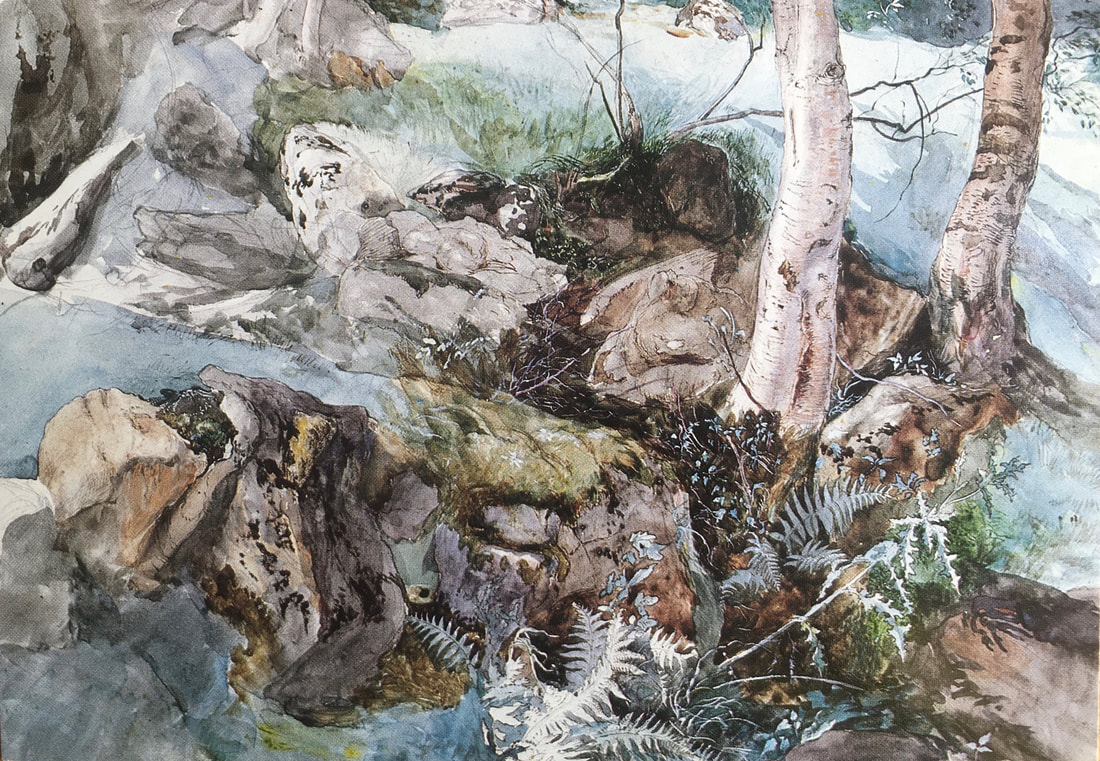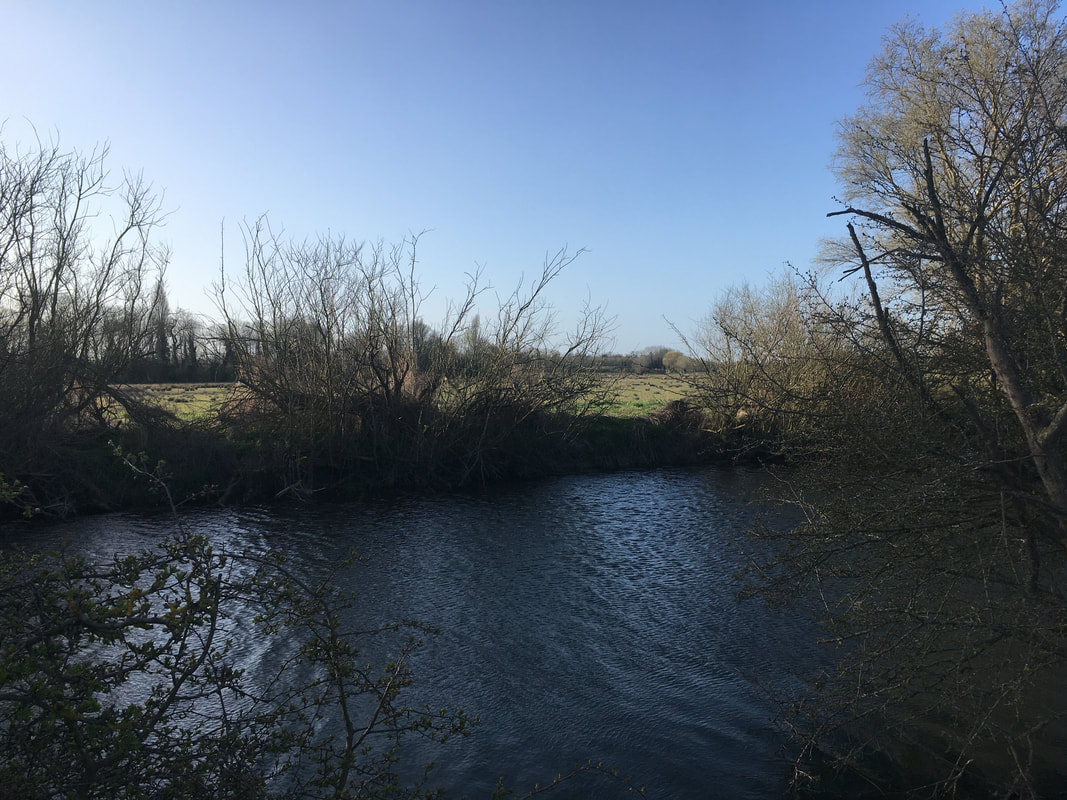|
Reflections from a home front: 4 My day begins with an early-morning walk across the fields and along the river. This isn’t just my daily exercise allowance; I’ve done it for ages, combining exercise, thinking, prayer, more thinking, and allowing the morning light to recalibrate my body clock so I sleep at night. [1] Even so, like many people, I’m discovering a new dimension to my relationship with the natural world. Today, as I walked by the quickening hedges with their snowdrifts of blackthorn blossom, then stood with the willows on riverbank, watching lapwings in the field opposite, it was hard to remember there was anything wrong with the day. It all stood in glorious counterpoint to the world of national emergency and social upheaval. One of what Robert Macfarlane, tweeting a photo of his apple tree, called ‘anchor-points for a world turned upside-down’ . At one level, corona confinement means almost any change of scene is welcome. Even the living room next door would provide some relief. Plus, there’s nothing like short supply to boost appreciation. Just as if you’re allowed a single cup of coffee/meal/piece of chocolate a day, you linger and savour and drain every last drop of the experience. At a deeper level, the natural world is vital for human flourishing. Research is confirming what so many know intuitively: that being outside in the natural or wild or created world (as you will) is a boost to wellbeing. [2] Deeper still, we are who we are in relation to the natural world. We gain a kind of wisdom from it. Not information, nor even an understanding of how it all works, wonderful and helpful though that is. But a slowly developing sense of the order of things – the rhythms, the variety, the abundance, the intricacy. An intuition that enables us to see differently. For the created, natural, wild world calls forth a different kind of attention. Its the opposite of the camera-phone, ‘snap now – look later’ mode, and more akin to John Ruskin’s practice of drawing in order to observe. Ruskin thought that everyone should learn to draw nature as a way of learning to really look, to notice. This card, which I’ve kept in my study for thirty years to remind me of that, shows his extraordinary capacity for observation and, I think, the appreciation that followed. Sometimes, being in extremis can also bring the detail into focus and inspire appreciation. The painter and poet, Dante Gabriel Rossetti, after an experience of grief, wrote a lovely little poem called ‘The Woodspurge’. The last two stanzas describe how, tired out after walking in the wind, he sat on a bank with his head in his hands: My eyes, wide open, had the run You can read the whole poem here. We don’t know what occasioned his state of mind, but he conveys beautifully that experience of gaining a deep, significant impression from a moment of intense emotion. There is something of that, too, in my morning walks these days. Though living in Cambridge for years, I have always viewed its environs as a poor excuse for countryside. When people say to me, ‘Cambridge must be a wonderful place to live,’ I’ve always said, ‘Yes but I wish it was somewhere else.’ I’ve always felt myself to be in exile, and felt that unless a walk involved a decent incline, some bracken paths and probably some wet slate, it wasn’t a walk worth the boot. Of course, I’ve made do. But now in this time out of time, I’m beginning to notice the beauty in this place. It’s not Cumbria or Wales (still, alas) but there is much to notice and appreciate. I’ve thought about taking up drawing again, thirty years after the art degree, but I’d be rusty and fear I may not get it back. Drawing with words feels more natural these days. Strangely, my poetry writing has never really ventured into the natural world before, but yesterday I made a first foray. Here it is. You can hear me read the poem by clicking on the play button. Lapwings
From smudged fields into watercoloured skies Rise the sudden silhouettes. Their cries Plangent as seabirds’, and edged With trills, like the frills On paddle wings that pull This way and that, trying themselves out In every direction. The flailing wing that leads the prey away Over the ground, now freely draws my eye To an air display. And in the midst – That dive, outstripping gravity. Plummet and recover; Earth-defying plover.
0 Comments
Your comment will be posted after it is approved.
Leave a Reply. |
AuthorStill me … Archives
September 2020
Categories
All
|


